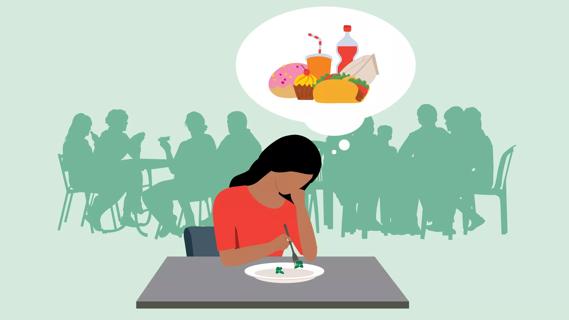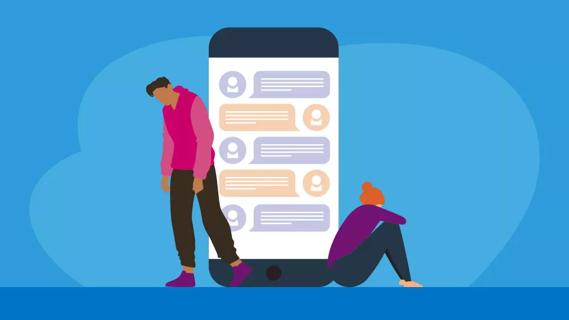They cause junk food cravings at night

Ever sneak a late-night snack after a hefty dinner and then go to sleep? (We’re looking at you heaping bowl of ice cream after that generous slice of meatloaf, roasted carrots and mashed potatoes!) Why, oh why?
Advertisement
Cleveland Clinic is a non-profit academic medical center. Advertising on our site helps support our mission. We do not endorse non-Cleveland Clinic products or services. Policy
“It’s not a character flaw. It’s simple biology. In functional medicine, we look at the root causes of health problems ― like how powerful hormones trigger night-time food cravings,” explains functional medicine specialist Mark Hyman, MD.
To tame your cravings, it helps to understand the havoc four powerful appetite hormones can wreak:
Feeling stressed? This drives up cortisol (the stress hormone), adding to your hunger, raising blood sugar and insulin, and starting a vicious cycle.
Advertisement
If you binge time and time again, your body can’t burn those extra calories, Dr. Hyman says. So it stores them as fat. To break the cycle, he recommends:
Eat regular meals. (Don’t skip breakfast.)
Always include a protein. (Choose chicken, fish, grass-fed meat) and high-quality fat (nut, seeds, avocados, coconut, olive oil).
Avoid all sugary drinks. That includes both hot and cold ones, from sodas and sweet tea to fancy calorie-laden coffees.
Avoid gluten or dairy if you can’t tolerate them.
De-stress during the day. (Breathe, do yoga, exercise).
Make sleep a priority. There’s no badge of honor for sleep deprivation. You’ll instead provoke imbalances in ghrelin and peptide YY.
“Taming your night binges can help you avoid weight gain and diabetes, not to mention feel a lot better about yourself,” Dr. Hyman says.
Advertisement
Learn more about our editorial process.
Advertisement

Look for signs like withdrawing from social eating and not gaining weight — and get treatment early if possible

Eating disorders are diagnosable mental health conditions, while disordered eating is unhealthy eating behavior that doesn’t meet the criteria for a diagnosis

This is an eating pattern that doesn’t meet the criteria for an eating disorder but can still be harmful

Having overweight and disordered eating is a high-risk combination that often gets dismissed or overlooked

While social media content doesn’t create eating disorders, it can easily exacerbate them

Get moving, avoid the scale and be kind to yourself — plus, learn your triggers

Too-strict ‘food rules’ can have negative consequences

It may be mistaken for digestive problems

If you’re feeling short of breath, sleep can be tough — propping yourself up or sleeping on your side may help

If you fear the unknown or find yourself needing reassurance often, you may identify with this attachment style

If you’re looking to boost your gut health, it’s better to get fiber from whole foods